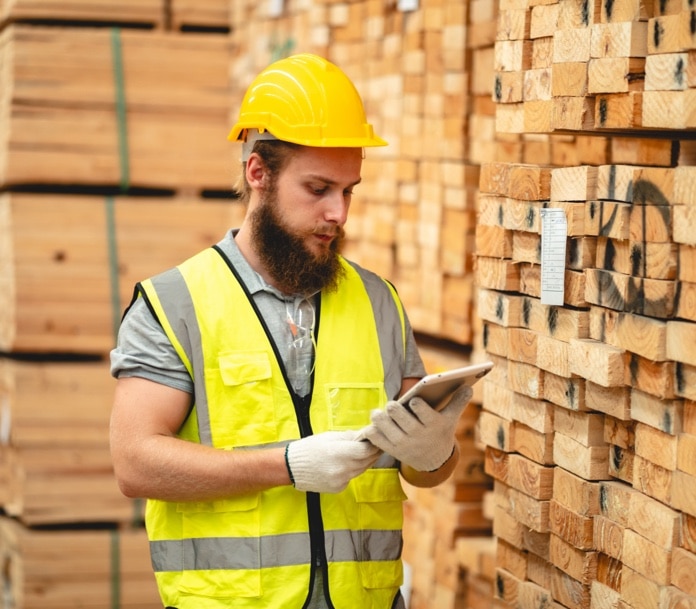Pallet purchasing and procurement play a critical role in supply chain efficiency. The right pallets can enhance operations, improve sustainability, and reduce costs. This guide explores essential strategies, key considerations, and expert tips for streamlining your pallet procurement process.
What Is Pallet Procurement?
Pallet procurement refers to the process of acquiring pallets for logistical needs, such as storing, handling, and transporting goods. This vital aspect of supply chain management ensures businesses have the tools necessary for seamless operations. Whether you’re looking to purchase new, recycled, or custom pallets, understanding procurement basics is crucial for making informed decisions.
Why Pallet Purchasing Is Important
Efficient pallet purchasing supports operational efficiency by:
- Reducing costs through bulk buying and strategic sourcing.
- Enhancing sustainability by opting for recyclable materials.
- Improving safety with high-quality, durable pallets.
- Streamlining logistics with standardized sizes and types.
By prioritizing these benefits, businesses can optimize their supply chain and achieve long-term success.
Types of Pallets for Procurement
When it comes to pallet procurement, understanding the types of pallets available is essential. Here are the most common options:
Wooden Pallets
The most widely used option due to their affordability and versatility. Wooden pallets are ideal for heavy loads but may require maintenance to prevent damage.
Plastic Pallets
Durable and reusable, plastic pallets are ideal for industries prioritizing hygiene, such as pharmaceuticals and food. While more expensive, their longevity can offset initial costs.
Metal Pallets
A durable option for heavy-duty industries like automotive and construction. Metal pallets resist wear and tear but may be cost-prohibitive for some businesses.
Recycled Pallets
For businesses seeking sustainable options, recycled pallets offer an eco-friendly alternative. They are cost-effective and help reduce environmental impact.
Key Considerations in Pallet Purchasing
When selecting pallets for procurement, consider these factors:
Load Capacity
Ensure the pallet can handle the weight of your products. Overloading can lead to pallet failure and safety hazards.
Material Selection
Choose the material that best suits your needs. Wooden pallets are versatile, plastic pallets are durable, and metal pallets offer high strength.
Sustainability
Opt for recyclable or reusable materials to align with eco-friendly initiatives. This reduces waste and enhances corporate social responsibility.
Standardization
Adhering to industry standards ensures compatibility with logistics systems, reducing inefficiencies.
Supplier Reputation
Work with trusted suppliers who provide high-quality products and consistent service.
Cost-Effective Strategies for Pallet Procurement
Streamlining costs in pallet purchasing doesn’t mean compromising on quality. Here are strategies to optimize your budget:
Bulk Purchasing
Buying pallets in bulk can significantly reduce costs. Many suppliers offer discounts for large orders.
Renting Pallets
If you have fluctuating needs, renting pallets may be more cost-effective than purchasing them outright.
Negotiating Contracts
Long-term contracts with suppliers can secure better rates and ensure a steady supply of pallets.
Choosing Recycled Options
Recycled pallets are often more affordable than new ones without sacrificing quality.
Sustainability in Pallet Procurement
Sustainable procurement practices are becoming a priority for businesses worldwide. Here’s how you can integrate sustainability into your pallet purchasing:
Using Recycled Pallets
Opt for pallets made from recycled wood or plastic to reduce waste.
Lifecycle Management
Implement a pallet recycling or refurbishment program to extend their lifespan.
Eco-Friendly Materials
Choose materials that minimize environmental impact, such as certified sustainable wood.
Best Practices for Pallet Purchasing
To ensure an efficient procurement process, follow these best practices:
- Conduct a Needs Assessment: Understand your specific requirements before purchasing.
- Evaluate Suppliers: Compare multiple suppliers to find the best fit for your business.
- Inspect Quality: Check pallets for defects or signs of wear.
- Plan for Storage: Ensure you have adequate space to store your pallets safely.
Inbound and Outbound Logistics with Pallets
Pallets are a cornerstone of modern logistics. Here’s how they impact both inbound and outbound processes:
- Inbound Logistics: Pallets improve unloading efficiency and minimize product damage during transport.
- Outbound Logistics: Proper palletization ensures secure delivery to customers and facilitates handling at distribution centers.
Technology and Innovations in Pallet Procurement
The pallet industry is evolving with innovations such as:
- Smart Pallets: Equipped with sensors for real-time tracking.
- Lightweight Pallets: Designed to reduce shipping costs.
- Custom Pallets: Tailored to specific product dimensions and requirements.
Common Challenges in Pallet Procurement
Despite its importance, pallet procurement can face several challenges:
- Fluctuating Costs: Prices for materials like wood can vary, impacting budgets.
- Supply Chain Disruptions: Delays in delivery can affect operations.
- Quality Concerns: Low-quality pallets can lead to product damage.
Addressing these challenges proactively can ensure smooth procurement processes.
FAQs
What factors should I consider when choosing between wooden and plastic pallets?
Consider load capacity, hygiene requirements, cost, and intended usage. Plastic pallets are better for clean environments, while wooden ones are cost-effective for general use.
How can I reduce costs in pallet purchasing?
Reduce costs through bulk buying, choosing recycled options, or negotiating long-term contracts with suppliers.
Are recycled pallets durable enough for heavy loads?
Yes, recycled pallets can be just as durable as new ones, provided they are properly refurbished and meet quality standards.
How does pallet standardization benefit logistics?
Standardized pallets ensure compatibility with forklifts and storage systems, reducing inefficiencies and improving safety.
What role do pallets play in sustainability?
Pallets made from recycled or eco-friendly materials reduce waste and carbon footprints, contributing to greener supply chains.
Should I buy or rent pallets for my business?
Buying is ideal for consistent needs, while renting offers flexibility for fluctuating demands or temporary projects.
Conclusion
Pallet purchasing and procurement are integral to the success of modern supply chains. By focusing on cost-effective strategies, sustainability, and quality, businesses can optimize their operations while reducing environmental impact. Whether you choose to buy new, recycled, or rent pallets, an informed approach ensures seamless logistics and long-term benefits.
Related Articles

- /
- /
10 Proven Strategies for Cost-Effective Pallet Procurement: Streamlining Your Supply Chain

- /
- /

